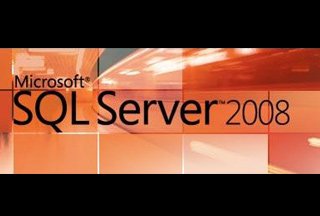 After waiting five years for a new version of SQL Server, November 2005 saw the RTM version of SQL Server 2005 become available to the public. In August 2008 we got the next version (SQL Server 2008) as the result of a new engineering process for SQL Server. I'm not sure when the next full version of SQL Server will come out, but there is supposed to be some type of release in the first half of 2010. At this point I'm not sure if the next version will be SQL Server 2011 or SQL Server 11 since we've moved from Windows 2000 to XP to Vista to 7.
After waiting five years for a new version of SQL Server, November 2005 saw the RTM version of SQL Server 2005 become available to the public. In August 2008 we got the next version (SQL Server 2008) as the result of a new engineering process for SQL Server. I'm not sure when the next full version of SQL Server will come out, but there is supposed to be some type of release in the first half of 2010. At this point I'm not sure if the next version will be SQL Server 2011 or SQL Server 11 since we've moved from Windows 2000 to XP to Vista to 7.
One of the things that I hear talked about, and sometimes intensely debated, is whether or not it makes sense to adopt the next version of SQL Server. There are so many differing opinions, almost one for each DBA out there, and it can get confusing for less experienced DBAs and developers out there trying to decide if they should push their company to upgrade to their servers.
So how soon should you upgrade your infrastructure? And is Microsoft pushing you along? Are many DBAs upgrading? I ran across a write up about SQL Server 2008 adoption from Colin Sasiuk and thought it was interesting. He shows 49% of his poll respondents have at least one SQL Server 2008 server 6 months after RTM, which seems high to me. However that might just be that Colin has a different audience.
BTW, I'd love to know how many of you have SQL Server 2008 in production. Users running live data on them, and what percentage of your infrastructure is SS2K8.
Microsoft has acknowledged a target of 24-36 months moving forward for versions of SQL Server. At first I thought that was a little crazy, but the more I think about it, the more I like it. We'll see features and enhancements more often in SQL Server, though most of us won't adopt them right away. However we'll get the chance to see how others use them and how they mature through versions. Even those on the bleeding edge will probably not upgrade their infrastructure each time a new version becomes available, so there will likely be lots of mixed environments out there. Mixed environments with 2, 3, or more versions at any given time.
The means each of us needs more skills, which means work learning about new features and practicing with them. But it also means that investments you make today, learning about 2005 or 2008, will likely continue to pay off for some time in the future.
Steve Jones
The Voice of the DBA Podcasts

The podcast feeds are now available at sqlservercentral.mevio.com to get better bandwidth and maybe a little more exposure :). Comments are definitely appreciated and wanted, and you can get feeds from there.
![]()
or now on iTunes!
![]()
- Windows Media Podcast - 29.6MB WMV
- iPod Video Podcast - 25MB MP4
- MP3 Audio Podcast - 5.1MB
Today's podcast features music by Everyday Jones. No relation, but I stumbled on to them and really like the music. Support this great duo at www.everydayjones.com.
I really appreciate and value feedback on the podcasts. Let us know what you like, don't like, or even send in ideas for the show. If you'd like to comment, post something here. The boss will be sure to read it.


